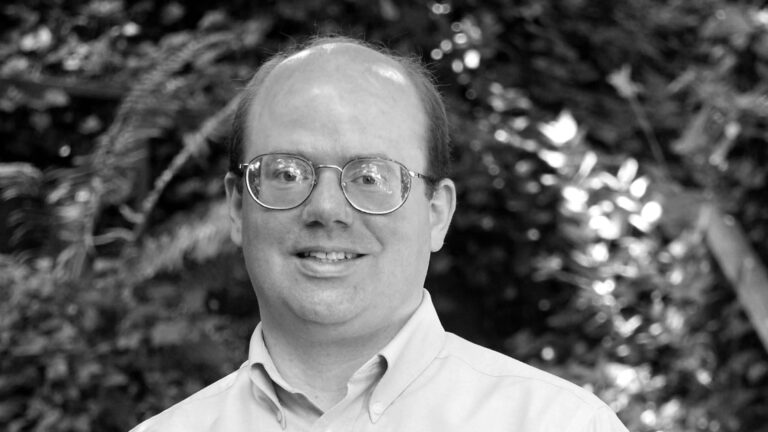The following is an uncorrected transcript generated by a transcription service. Before quoting in print, please check the corresponding audio for accuracy.
Tony Merida: Rosaria, Dennae, you have much to teach me and many others I think, about adoption and foster care. Can you tell us…begin with the context, children you’ve adopted, fostered.
Rosaria Butterfield: Yeah. Well, we are blessed to have four children by adoption. We adopted all four out of foster care although two came through a private agency so two of our children came as infants and then two of our children came as teenagers, so at the age of 17. And we did that twice and you’ve never seen me on the Dr. Phil Show, which of course means it all worked out. And it did because the covenant is not just about healthy babies needing homes. And so when I tell people that I’ve adopted people who stand a foot taller than I do, it’s just true.
Merida: What about you Dennae?
Dennae Pierre: My oldest son is 6’5.
Butterfield: Yeah. It’s hysterical, and here we are, right?
Pierre: Right. So yeah we were able to adopt our first two children through the foster care system. They were eight and five when we adopted them. Brother, biological siblings. We’ve fostered other children through foster care and then just through maybe unofficial foster care kids in our church. So we’ve had many come and go and our…but our two that we’ve been able to adopt.
Butterfield: How about you?
Merida: Yes. So we went from zero to four. We adopted four kids from Ukraine nine years ago, a biological sibling group. And then about a year later we added an Ethiopian to our mix, Joshua. So now we have five teenagers ranging from 13 to 18. It has been quite a ride so…
Butterfield: Great on the food bill too.
Merida: Oh my goodness. Yes yes, yes yes. Talk to us about what you guys have learned people may watch this video may be struggling. The struggle is real in adoptive parenting and foster care. Just some encouragement that you might offer.
Butterfield: Well, first of all, I would say “all hands on deck.” And what I mean by that is we have tens of thousands of children in the foster care system in the United States and Tony, you’re going to do the count internationally. It’s an enormous crisis and it’s an enormous opportunity for the church to show that the covenant is big and wide and capacious. And so maintaining a home studied house can be extremely helpful. Safe families is a wonderful opportunity for people to just kind of dip in because it allows you to be home studied, it allows you to work collectively with other families in the church so you might not be able to, you know, unlike Tony you might not be able to have the room for a sibling group but you could mentor the mom in job and job training and things like that so I would do that but I would also say, boy I know this is where it’s going to get a little dicey here, single people are needed. They’re needed. They’re absolutely needed there are so many teenagers in foster care who will not be placed in a house with a mom and a dad because there is the reality of pervasive sexual abuse in the lives of so many of especially the teenage girls in foster care. So we need to think outside the box. This is a crisis. We need to measure our boundaries against the blood of Christ, not against our church tradition.
Merida: Amen.
Pierre: Yeah. We have some great single moms fostering and adopting in our church. I think even thinking about that, how important it is to include your community in the process. So I think what makes adoption what can make it really challenging is all the different things. Parenting is hard enough as it is and it takes a village and a community to parent your children. But when you add in trauma and loss and, you know, maybe some special needs there’s so much and it’s just so easy as Americans to just get really especially when there’s pain to get really tunnel visioned and just kind of hunker down and do things on your own and you have to invite your community in. I think people want to be part of it. They don’t always know how and sometimes you have to take the initiative and say, “Hey, I really… I need to be vulnerable and say I need some help and I need some support.” And it’s always been amazing to see how Christian community is able to come around families who are struggling. I think the best advice I can give adoptive parents is don’t do it by yourself. Even if you can, this is something that your church family needs. You get to kind of be… to give this gift to your local church to care for orphans. If you happen to be the home taking them in but your whole church gets to come around these children and teens.
Merida: Exactly.
Pierre: But what would you say?
Merida: Well, amen to what you’re saying. Just if you feel in in the adoption parenting process that you’re weak, I would just say you’re not unusual. And if you’re considering adoption and or foster care, this is an opportunity really show off the grace of God. And it will be an opportunity for you to learn how to pray. It will be an opportunity for you to take your wounds, the wounds that you feel from these children to the wounds of Christ who understands our wounds and sympathizes with us in our weakness. And so we have a strong savior. We were weak people but we have a strong savior. And those are the kinds of people that God uses in this process. And so yeah adoption has taught me how to pray, it’s taught me how to… it’s made me desperate. It’s been the hardest thing I’ve ever done in my life but we wouldn’t change the story at all because children matter and we have a short life.
Butterfield: That’s right.
Merida: And if you want to make your life count here’s a good way to really make your life count, it’s to invest in the least of these. And then I just think the deepest most sustaining truths that, you know, in this journey for us have been the most basic of truths of simply trusting God, trusting in His sovereignty. It’s remembering that our reward is in heaven. I love Luke 14 when Jesus says if you’re going to have a party don’t invite your rich relatives and your friends but invite the poor the crippled the lame and the blind because they cannot repay you but you will be repaid at the resurrection of the just. And he just, he fills up ordinary hospitality with eternal ramification, right? And that truth is just being great when you experience ingratitude from kids or you know we adopted our kids we thought maybe they’re gonna sing praise songs about us and so…
Butterfield: And then you saw the holes in the walls. That’s right.
Merida: Then you call the police and orphan care is warfare, you know. But we do it with our eyes on Jesus and in the kingdom.
Pierre: Yeah. The picture I have as you’re talking is just what a gift it is to be invited to participate with the sufferings of Christ. And that it’s a real privilege to be able to step in and walk in suffering with children that belong to God. And that’s probably the thing that God most reminds me of is when I’m wrestling with God and praying for a kiddo who does have so much pain I don’t know the future of and it’s overwhelming the brokenness and suffering. And it’s that these are his kids, that he is the father to the fatherless and he treasures them and has placed them in our care because of that. And so I think just to hold onto that truth that these are, this is God’s daughter, this is God’s son, is a really powerful reminder as we are just bringing this back to God daily.
Butterfield: May I add one more basic. Because, you know, it’s easy it’s the basic that we all forget in this group because we’ve got two pastors wives and a pastor. But another basic is the crucial importance of church membership. Because when you are a Bible-believing member of a Covenant Church your brothers and sisters in the church are…you have the responsibility to say to them this is how my son with autism responds when you give direct eye contact. You have the family right to elbow each other a little bit and we’re going to be there for each other. We believe that the church is there from cradle to grave. We don’t believe Jesus is our imaginary friend. We believe that all the good things that we’re talking about are going to come in part through the pastor and the elders and our relationship as brother and sister. So show up we must, but we don’t show up alone. And part of why is because there’s a lot of rejection. So we are not adopting children so that we can be their savior. We are not adopting children so that we can, you know, get a good pat on the back. That’s not why we show up. We very well may be rejected in fact, you know maybe 10 years from now we’ll get together again on this panel and I hope it’s not that way but will we be able to say it was all worth it even if they leave us. Will we be, we must. Well let me answer that.
Pierre: Absolutely.
Butterfield: We must be able to say that. We must be able to say that we have followed Jesus through this not to gain something but to give.
Merida: Amen, Amen.
 “If you’re going to read just one book on Christian living and how the gospel can be applied in your life, let this be your book.”—Elisa dos Santos, Amazon reviewer.
“If you’re going to read just one book on Christian living and how the gospel can be applied in your life, let this be your book.”—Elisa dos Santos, Amazon reviewer.

































